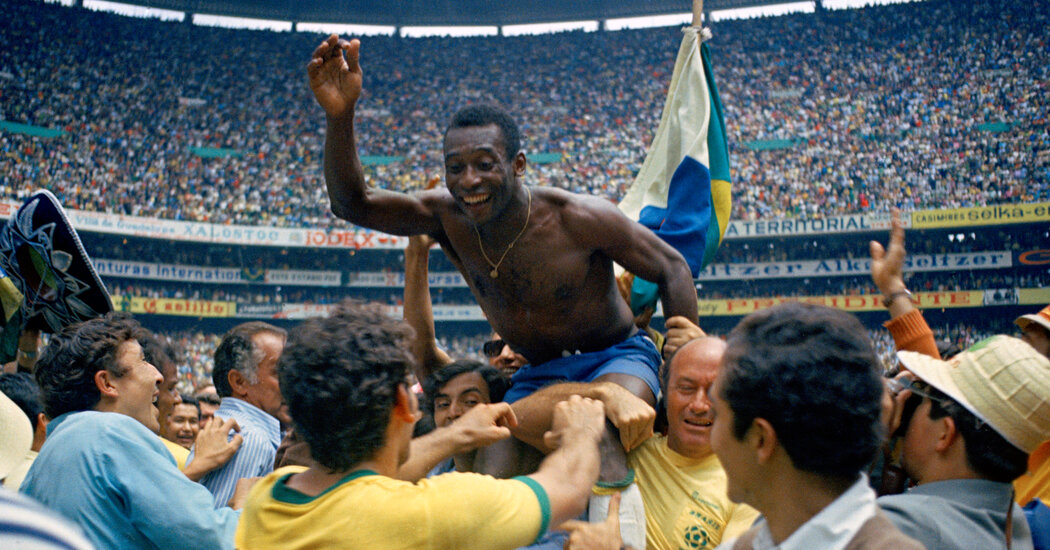
Tostão, his old teammate, has said that Brazilian players learn to separate themselves from their identities — that the nicknames by which so many earn their money and their fame become a sort of barrier to protect the individual from the mania that surrounds them. Pelé added a third layer: his nickname, his trademark, became a synonym not for greatness or even for excellence but for an unimpeachable, scarcely attainable form of perfection.
All of that had been built not on what people had seen — other than in those unsteady highlights — but on what they had heard, on what they had read, on what had been passed down to them by word of mouth. It was enough to make opponents relish facing him and to draw fans, thousands upon thousands of them, to his games, meaningless or not.
That might, of course, have been an impossible standard to meet; it is telling, with Pelé, that he consistently met those soaring expectations.
“We went up together to head a ball,” the Italian defender Giacinto Facchetti said after playing him. “I was taller, had a better leap. When I came back down, I looked up in astonishment. Pelé was still there, in the air, heading that ball. It was like he could stay suspended for as long as he wanted to.” Facchetti’s teammate Tarcisio Burgnich was more circumspect. “I told myself he’s made of skin and bones, like everyone else,” he said. “I was wrong.”
The Benfica goalkeeper Costa Pereira met Pelé in the 1962 Intercontinental Cup, the predecessor of the Club World Cup, a meeting between the European and South American champions. “I arrived hoping to stop a great man,” he said. “I went away convinced I had been undone by someone who was not born on the same planet as the rest of us.”
That status had been established by the time Pelé arrived in Mexico for the 1970 World Cup. He had already done everything there was to do: He had scored a thousand goals; he had broken countless records; he had decorated the game with endless moments of wonder. He was the greatest there had ever been.
But that was the first chance that millions had to see him properly, almost for the first time, not just in a hazy glimpse but in full, oversaturated color. That pass, his final act before he was hoisted onto his teammates’ shoulders, the World Cup in his hands, was not especially spectacular. It was not particularly complex. What made it special, though, what makes it last, was his timing. Pelé’s timing was perfect.